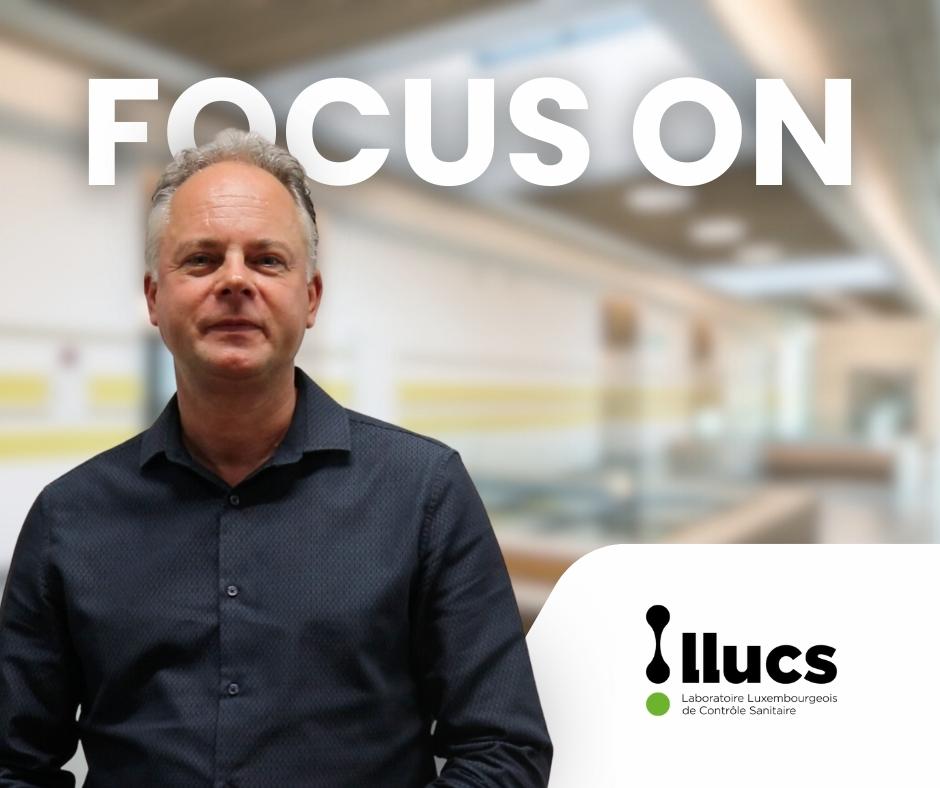LLuCS offers a wide range of microbiological and chemical analyses in compliance with the standards and criteria set by the relevant authorities. The laboratory, founded in 1993, is about to celebrate its 30th anniversary this year, a testament to their commitment to quality. On this occasion, let’s delve a bit deeper into their areas of expertise and their values.
When was your company founded?
The laboratory was founded in 1993.
However, there is another equally significant year, which is 2019. That year, the laboratory underwent major changes, both in terms of shareholders and name, transitioning from HTA (Hygiene in Food Technology) to LLuCS (Luxembourg Laboratory for Health Control). It was also in 2019 that we achieved a crucial milestone by obtaining accreditation according to ISO 17025 standards from OLAS (Luxembourg Accreditation and Surveillance Organization), a crucial recognition for our laboratory.
Can you provide an overview of your activities?
Our private laboratory positions itself as a trusted partner for our clients. We offer a comprehensive range of analysis services divided into four distinct sectors of activity.
- Food analysis: We conduct analyses on a variety of matrices, covering the entire food chain, from production to consumer products.
- Water analysis: We examine all types of water, whether it’s potable or non-potable, swimming pool water, or medical water, such as dialysis or endoscopy waters.
- Hygiene analysis: We offer hygiene analyses in both the food and environmental sectors, ensuring the safety and quality of products and environments.
- Air analysis: We assess Indoor Air Quality (IAQ) by conducting passive spot sampling or using continuous monitoring systems.
Our range of services includes a complete process, from sample collection to reporting and interpretation of analysis results. While we specialize in microbiological analysis at our Esch site, we also offer other physico-chemical analysis services in collaboration with external partners that meet our high-quality standards.
In which field do you primarily operate?
Due to the diversity of our services, we have no sectoral limitations. We work with a variety of clients, ranging from individuals to public entities, small businesses to large corporations. Our clients come from various sectors, including HORESCA, especially in the restaurant and catering industries, as well as municipal administrations, nurseries, retirement homes, hospitals, public works, production facilities, and many others.
Do you have a flagship product or a specific research area?
Our business remains balanced around our three historical analysis sectors: food, water, and hygiene. However, over the past two years, we have actively developed our expertise in Indoor Air Quality (IAQ) analysis.
IAQ is a current public health and environmental concern that affects everyone. To meet this growing demand and anticipate future regulations, we have primarily developed two analysis methods:
- A passive method using sampling kits and accessible analyses for precise and targeted analysis of chemical or biological pollutants present in the air.
- The implementation of a continuous monitoring system to qualitatively and quantitatively assess contamination by various pollutants and monitor comfort indicators such as temperature, humidity, CO2 levels, and noise. These analyses also provide real-time air quality reports via a dedicated application, accessible to the general public through devices such as smartphones, tablets, or computers, or simply by scanning a provided QR code.
What is your latest innovation?
As a routine analysis laboratory rather than a research one, our main role is not to create new analyses but to implement already recognized and validated analysis methods. Our goal is to accredit these methods to produce faster, more reliable, and, most importantly, precise results.
However, we have developed our own brand of air sampling and analysis kits under the name LLuCS. These kits allow anyone to take samples and send them directly to our laboratory. They are comprehensive and available on our website.
Since when have you been located at HoBH?
We moved to HoBH in December 2017. At the time, we were looking for a site that offered more space for our laboratory, as well as for our administrative operations and storage, in anticipation of our future expansion.
What benefits has HoBH brought to the growth of your company?
The decision to move to HoBH has been very beneficial for our company. Jean-Paul Scheuren, co-owner of HoBH, introduced us to a modern and customizable site offering various complementary services to facilitate our establishment. Furthermore, he presented his vision of HoBH as a place for meeting and sharing with other actors on the site. This idea, as well as the possibility of finding synergies with other laboratories and even directly offering them our services, convinced us.
The move to HoBH has brought us more independence and self-confidence, while allowing us to expand our network of contacts and visibility, which is essential for our growth. Over the years, our business has experienced steady growth, going from 10 to 23 employees and from around 22,000 to over 48,000 samples analyzed, and this trend is expected to continue until the end of the year.
What are the advantages of this site?
The advantages are numerous, starting with the modular and customizable structures that make it significantly easier for us to adapt to the needs of our laboratory. We can focus on managing our facilities, as the technical team at HoBH takes care of the rest while remaining available when needed.
Additionally, as mentioned earlier, the proximity of other companies on the site allows us to communicate and find solutions to any more technical issues related to our activities.
Finally, the strategic location near the highway and the border makes it easy to access for both our clients and all our employees, especially those who commute from neighboring countries, reducing their travel time.
